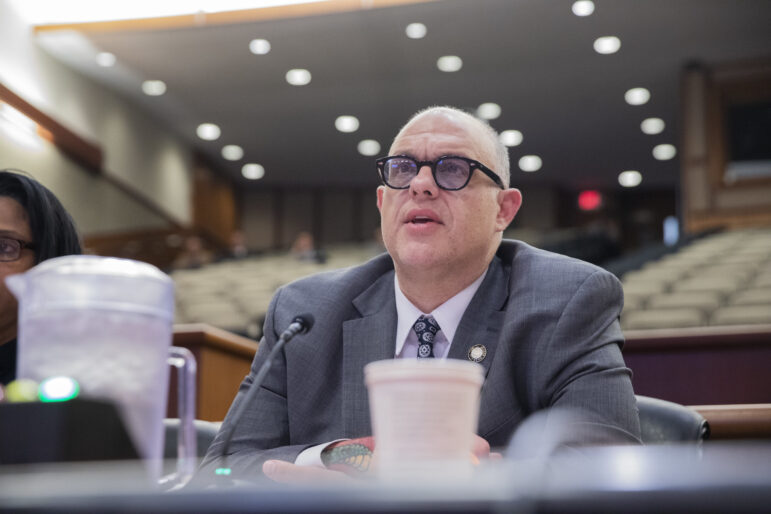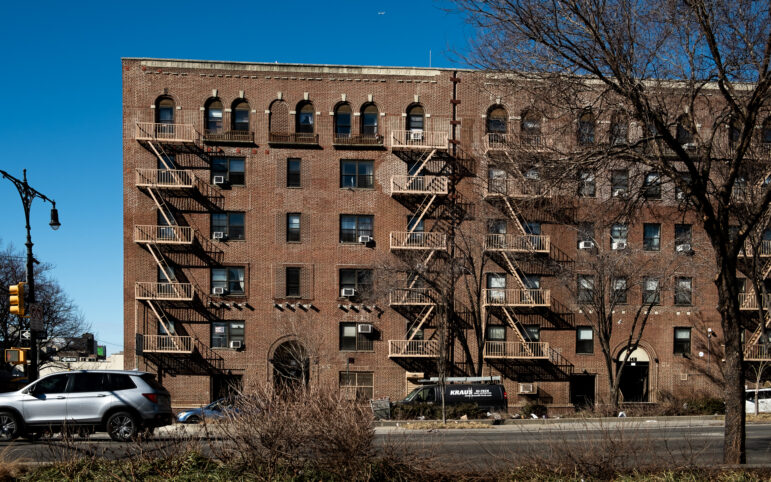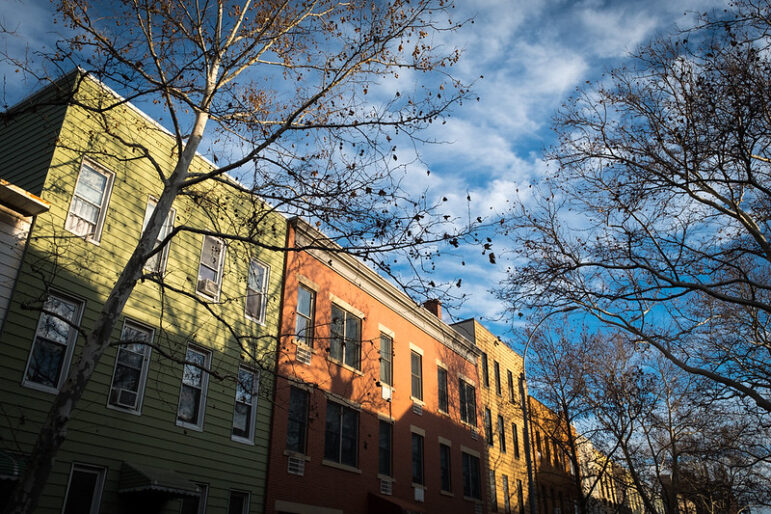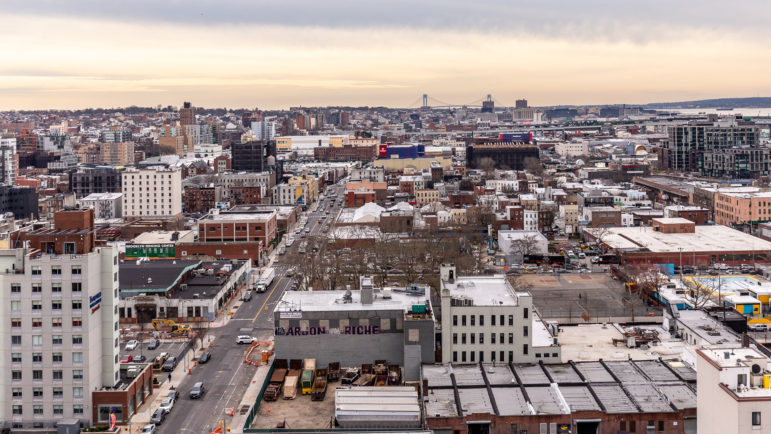It’s snowing outside, but it’s been raining policy in New York’s 2021 campaigns. Here’s the first installment of a series breaking down some of the big ideas.
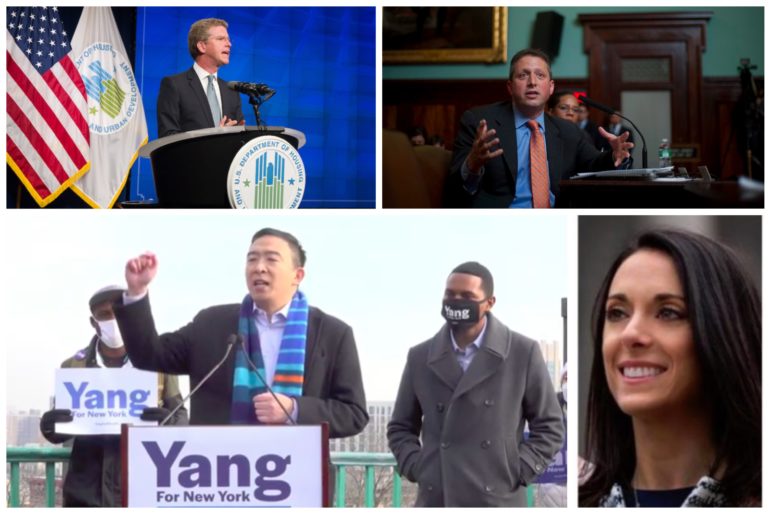
HUD, NYC Council, YouTube, Orlins’ Campaign
2021 candidates Shaun Donovan, Brad Lander, Andrew Yang and Eliza Orlins dropped recent policy proposals.The 2021 municipal campaign will be with us for many months, whether you’re looking at the Democratic primary in June or thinking about the general election in November. With so many offices forced open by term limits, and so many candidates in the field, every week brings new ideas for how to address some aspect of the city’s present problems or future potential. The Policy Shop will offer slimmed-down snapshots of some of the more intriguing offerings by candidates for citywide office, borough president, the Council and district attorney.
DA Candidate Calls for Full Decriminalization of Sex Work
Eliza Orlins, a public defender running in the crowded Democratic primary for Manhattan district attorney, issued a detailed policy on Jan. 27 for how her office would handle sex work. She vowed that it “will never prosecute criminal charges based solely on the consensual exchange of sex for money or another thing of value, or solicitation of such an exchange” although it “will prosecute cases in which sexual assault or violence arises from an instance of consensual sex work” and “continue to file charges against human traffickers, and to actively combat trafficking in all forms.” She promised training for all prosecutors and other DA staffers who deal with sex workers and to advocate for amending one state law and repealing another.
Several other candidates for the DA’s office have staked out broadly similar positions (Diana Florence and Tahanie Aboushi promised not to enforce laws against sex workers, Dan Quart included it on a list of crimes he won’t prosecute, Lucy Lang made it part of her LGBTQ+ policy, Alvin Bragg said as much in a candidate questionnaire and Liz Crotty’s spokesman tells City Limits “she’s for and would applaud the state legislature decriminalizing sex work”; Tali Weinstein has hedged a bit). But the Daily Beast declared that Orlins’ proposal represents “one of the most detailed policy positions on the full decriminalization of sex work ever put forward by a major candidate at any level of U.S. politics.”
The proposal is at odds with the push by other progressive Democrats to establish a “Nordic model” in New York State that goes after buyers, but not sellers, of sex. A proponent of that model, State Sen. Liz Krueger of Manhattan, says she supports it because, “We must empower and support people currently or formerly in the sex trade, while addressing the violence, exploitation, and trauma inherent in the buying and selling of sex—by continuing to hold pimps, brothel owners, and sex buyers accountable for the harms that they cause.”
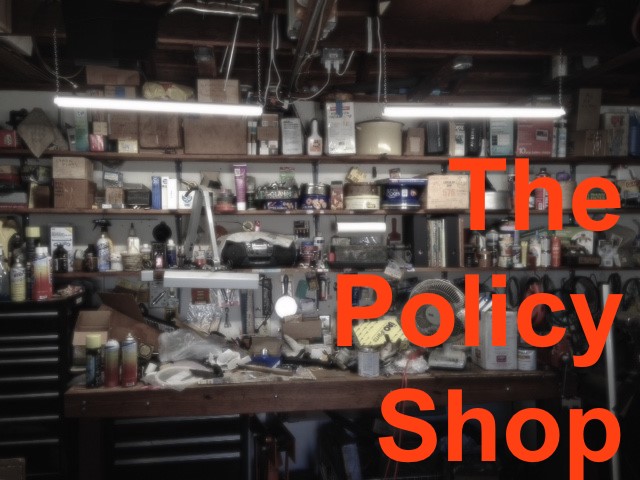
Circacies
Comptroller Hopeful Maps Plan for 540,000 Units of Social Housing
Does New York’s housing market need more supply or better regulation of existing stock to relieve the affordability crunch? Brooklyn Councilmember and comptroller candidate Brad Lander argues it needs something different: More housing, but not for the market. He’s calling for a 10-year plan to preserve or create 540,000 units of so-called “social housing,” an umbrella term for housing that is, by one means or another, protected from the speculative whims and price appreciation of the private real-estate game. That includes protecting the social housing we already have (50,000 units of Mitchell-Lama housing, 30,000 apartments in Housing Development Fund Corporations and 170,000 in NYCHA) as well as creating 154,000 new units.
The new units would come from creating a land bank to scoop up properties that—perhaps because of the COVID-19 economic disaster—go into default, committing to using public land and reorienting existing housing subsidies to favor social housing, lower income tiers and nonprofit developers.
He also wants to put the apartments created through mandatory inclusionary zoning under social ownership, and create a shared-equity model of homeownership that would open the door to moderate-income buyers and keep the homes affordable by limiting resale profits. Lander’s plan encompasses more units than any of the affordable housing plans to date (Mayor Bill de Blasio’s 300,000-unit plan was the largest). Since the scope of his plan goes well beyond the powers of a comptroller, it is a vision he’d need the mayor, Council and state government to actually enact.
Look to see whether any mayoral hopefuls who have yet to offer a detailed housing program—which is most of them—grasp elements of Lander’s plan, which itself follows some of Scott Stringer’s advocacy for a city land bank.
Donovan Says He’ll Prioritize Creating “15 Minute Neighborhoods”
The policy wonk of the 2021 campaign so far is, hands down, former HUD secretary, ex-OMB director and one-time city housing commissioner Shaun Donovan, who’s issued detailed proposals on climate change, education, aging and how to fix the Jets (the last one is a joke … at least so far).
Last week he released a vision for creating “15 minute neighborhoods” based on the idea that, “Every New Yorker should have the opportunity to live in a 15 minute neighborhood, where a great public school, fresh food, access to rapid transportation, a park, and a chance to get ahead can all be found within 15 minutes of their front door.” Of course, such neighborhoods do exist, but many nabes have not developed that way thanks to disparate investment, and others have seen their local retail sector nosedive amid COVID-19.
Donovan’s multidisciplinary plan calls for targeting city investments in neighborhoods that have been maligned in the past, leveraging private money to see entrepreneurs, reworking small business regulations to be more flexible, flexing zoning rules to allow more creativity on ground-floor uses, and making commercial corridors easier to get to and around. Transit plays a key role in defining exactly what a 15-minute neighborhood is: Average walking pace gets you about three-quarters of a mile in 15 minutes, but if you’re on a bike or an express bus tooling down a dedicated lane, the 15-minute radius expands dramatically.
Yang Targets Health Equity
As the city looks beyond the COVID-19 crisis to healing some of the healthcare injustices that made the pandemic so deadly and disparate, Democratic mayoral candidate Andrew Yang sees a chance to use the city’s existing public-health framework to create more equity.
His plan would make ending health disparities a charter mandate for the health department, using the CUNY system to train a more diverse staff for public hospitals and expanding the system of neighborhood action centers—which bring together healthcare providers and community nonprofits—to more areas of the city. Yang also thinks de Blasio’s NYC Cares program, which offers a path to care for the uninsured, should expand. His proposal also calls for mandatory racial equity competency training, a bigger role for doulas in pregnancy care and more explicit treatment of gun violence as a public-health crisis.
Some of our previous policy coverage:
Max & Murphy on the Issues: Climate Change
Mayoral Hopefuls Issue Competing Climate Plans
Max & Murphy on the Issues: Policing
DA Hopeful Calls for Cracking Down on Elder Scams—and Failing Nursing Homes
How Manhattan’s Next DA Might Handle Lying Cops and Bad Prosecutors
Give Scott Stringer This: He Has Proposed a Hell of a Lot of Policies
Wiley Sees Potential for Economic Stimulus in City’s Own Capital Spending
In ‘Holistic’ Approach to Crime, DA Hopeful Wants to Prosecute Landlords
Mayoral Hopeful Donovan Outlines Vision for Addressing Climate Change



